“I’m hoping if some media attention can be brought to this, that maybe they will actually step up and get people’s trash and recycling bins to them or at least publicly address the situation.”


“I’m hoping if some media attention can be brought to this, that maybe they will actually step up and get people’s trash and recycling bins to them or at least publicly address the situation.”

“If we don’t take action to solve our plastics problem, there will be less and less environment to celebrate — and maybe even more plastic in your beer.”
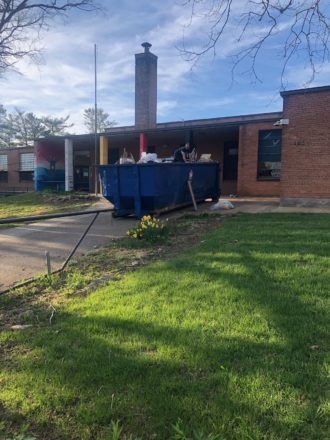
The biggest sting seemed to be the timing: The dumpster in front the former Asheville Primary School arrived one day after the Asheville City Board of Education board voted to close Montford North Star Academy.

“I am hoping you will comment here on how to make sure your drivers are recycling the past week’s Xpress after delivering the new.”

“What we as citizens can do now to minimize the number of plastic bags that end up in the landfill is to deposit our plastic bags at various stores that provide bins for this purpose.”

“On balance, our ordinance would significantly reduce the amount of pollution, waste and greenhouse gases created to help county residents carry their groceries out of the store.”

“We need to have more transfer stations available for recycling. We also need more waste receptacles that are routinely serviced.”
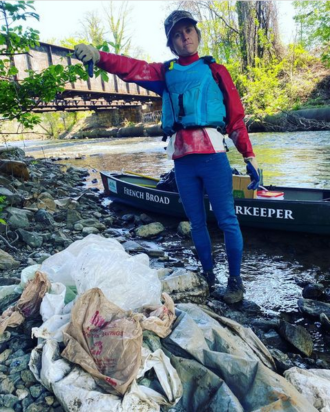
“A third of microplastics we’re seeing in the French Broad watershed is coming from these plastics that we might use for 12 minutes and end up throwing away. So anything we can do to curb the input of that into our daily lives the better,” said Anna Alsobrook, watershed science and policy manager for MountainTrue.

“Most people are really good at bringing their own water bottle,” says Kathleen Hahn from DANCECLUB Asheville.
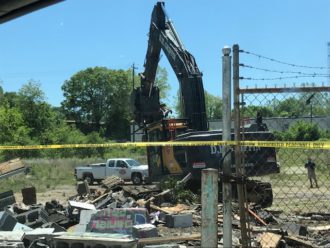
Landfills tend to fall in the “out of sight, out of mind” category — unless you’re living next to one. But Buncombe County’s recent move to prepare additional landfill space for both construction and municipal debris is a reminder that such facilities have a finite life.
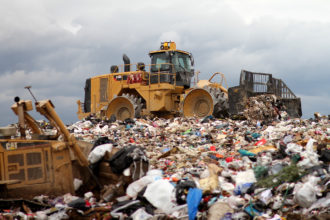
All signs indicate that the area’s growth isn’t going to slow down anytime soon. Making good on waste-reduction goals has become significantly harder with more people entering the equation, but local waste management teams say that just means it’s time to double down on their efforts.
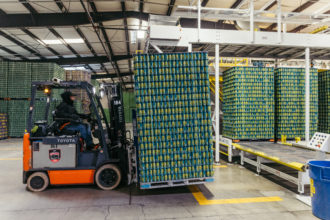
To help reduce industry waste, Sierra Nevada has partnered with American Recycling of Western North Carolina to create the WNC Brewery Recycling Cooperative, a drop-off site in Candler.
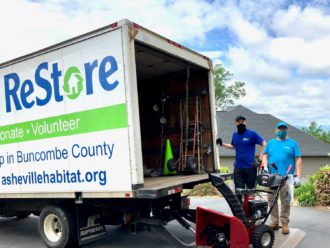
As 2021 dawns, the glow of the holiday season fades and social distancing continues in cluttered homes, many will make resolutions to clean up their space. Here’s a look at the area’s more environmentally friendly ways to handle unwanted items.
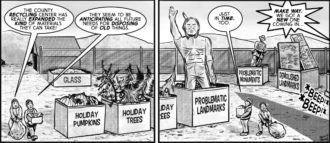
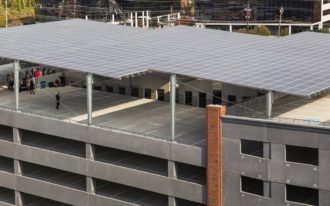
Together, the city of Asheville and Buncombe County approved over $11 million in funding to install roughly 7 megawatts of solar power at public facilities and area schools. The projects are anticipated to save the governments and local schools roughly $650,000 in electricity costs in the first year and more than $27 million over the installations’ 30-year operational life.

“COVID-19 should be a stark reminder that we always live in uncertain times and we should conserve our resources that we may be better prepared to make it through the hard times that will surely come.”
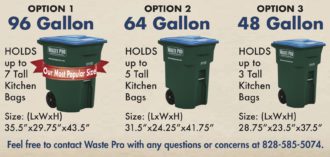
Dane Pedersen, Buncombe County’s solid waste director, said many residents were confused over what would be included in the $19.21 monthly service fee. He explained that the cost covers the required rental of two containers from Waste Pro, one for trash and one for recycling, as well as weekly trash pickup and recycling collection every two weeks.

“Cutting back on this service only encourages people to put more recyclable material into their regular trash.”
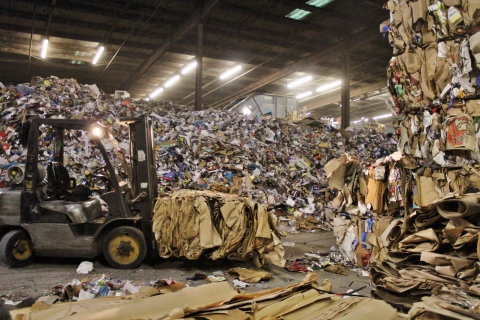
Eric Bradford, director of operations at local environmental nonprofit Asheville GreenWorks, calls China’s restriction of its recyclables market a wake-up call for domestic recyclers. “We were basically paying China to be our landfill for these ‘recyclables,’ and we felt good about it,” he says.
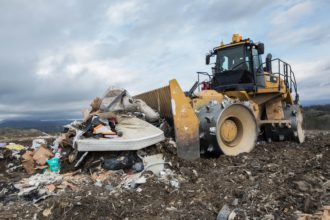
Buncombe County has used about a third of the total 12.5 million cubic yards of space available to receive municipal solid waste, which the department tracks separately from waste produced by construction projects. At its construction and demolition landfill, which sits on the same property but is sorted separately, the county still has about 1.3 million cubic yards of fillable space out of a maximum capacity of about 2.4 million.

“I really wish Council would adjust their priorities and think of us who pay extra fees for our vehicles ($30), dog licenses ($10), chicken registration ($25) and so much more — the 2018 Fees and Charges Manual is over 120 pages and is an interesting read.”